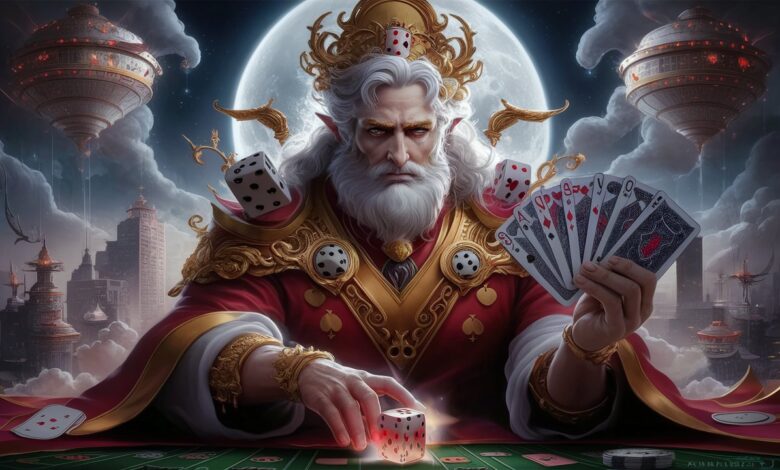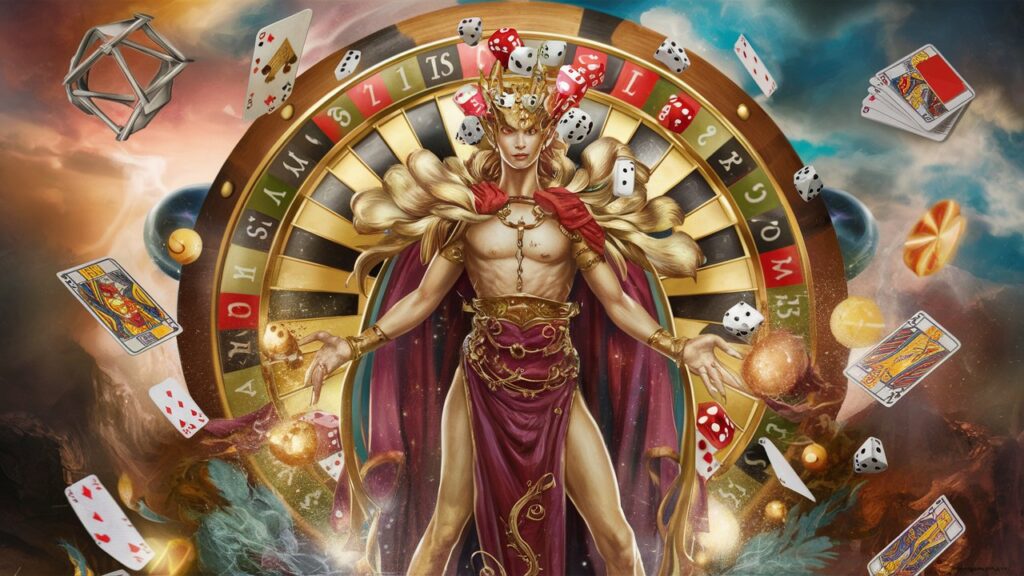The Gambling God: Myth Risk and the Allure of Chance

Introduction: The Enigma of the Gambling God
The concept of a “Gambling God” has fascinated humanity for centuries, embodying the thrill of risk, the allure of fortune, and the existential dance between luck and strategy. Whether depicted in ancient myths, modern casinos, or digital gaming platforms, this archetype represents humanity’s eternal quest to master chance. This article delves into the mythology, psychology, and cultural impact of the Gambling God, exploring its role in shaping our relationship with risk and reward. From the dice-rolling deities of antiquity to the algorithms governing online slots, we unravel the threads that bind luck, faith, and human ambition.
1. The Mythology of the Gambling God: Deities of Chance and Fortune
Throughout history, cultures worldwide have personified luck and gambling through divine figures. In Norse mythology, Forseti, the god of justice, was often invoked in games of chance to ensure fairness. The Hindu goddess Lakshmi, symbolizing wealth and prosperity, is worshipped by gamblers seeking her blessings. Meanwhile, the Greek pantheon featured Hermes, the trickster god associated with luck and cunning—traits essential to gambling. These deities reflect humanity’s desire to assign agency to randomness, transforming chaos into a narrative of divine intervention. The Gambling God, in this context, becomes a mediator between mortal effort and cosmic unpredictability, offering solace to those who dare to bet against the odds.
2. The Psychology of Risk: Why Humans Worship the Gambling God
The Gambling God thrives in the human psyche because risk-taking is wired into our survival instincts. Neuroscientific studies reveal that gambling activates the brain’s reward system, releasing dopamine during near-misses and wins alike. This biochemical response mirrors the euphoria ancient worshippers might have felt when praying to their gods for luck. Cognitive biases, such as the “illusion of control” (believing one can influence random outcomes) and the “gambler’s fallacy” (expecting past events to affect future probabilities), further cement the Gambling God’s relevance. Whether through superstitions like lucky charms or rituals like blowing on dice, players unconsciously seek to appease this metaphorical deity, blending logic with mysticism.
3. The Gambling God in Modern Culture: Casinos, Apps, and Pop Culture
Today’s temples to the Gambling God are sprawling casinos, online betting platforms, and mobile apps. Las Vegas, Macau, and Monte Carlo stand as modern meccas where fortune-seekers flock to test their fate. Pop culture immortalizes this archetype in films like Ocean’s Eleven and songs like Kenny Rogers’ The Gambler, which romanticize high-stakes risk-taking. Even video games like Red Dead Redemption 2 feature poker mini-games, blending virtual skill with simulated luck. The rise of cryptocurrency trading and NFTs—digital arenas where speculation reigns—further extends the Gambling God’s domain, proving that our fascination with chance evolves alongside technology.
4. The Dark Side of the Gambling God: Addiction and Ethical Dilemmas
Not all worship of the Gambling God ends in triumph. Problem gambling affects millions globally, with addiction rates rising alongside accessibility to online platforms. The Gambling God’s shadow looms large here, representing not just opportunity but exploitation. Critics argue that industries profit by manipulating psychological vulnerabilities, using algorithms designed to maximize engagement (and losses). Ethical debates rage over loot boxes in video games, criticized as “gateway gambling” for minors, and the morality of advertising that glamorizes risk. Acknowledging this duality is crucial—the same deity that offers hope can also ensnare the vulnerable.

5. The Future of the Gambling God: AI, Blockchain, and Beyond
As technology advances, so does the Gambling God’s influence. Artificial Intelligence (AI) now powers predictive models in sports betting, while blockchain ensures transparency in decentralized gambling platforms. Virtual reality casinos promise immersive experiences, blurring the lines between reality and chance. Yet, these innovations raise questions: Can AI become the new oracle of luck? Will blockchain eliminate fraud, or simply create new forms of risk? The Gambling God’s future lies in this tension—between innovation’s promise and its pitfalls.
Conclusion: Embracing the Gambling God with Wisdom
The Gambling God is neither purely benevolent nor malevolent; it is a mirror reflecting humanity’s complex relationship with uncertainty. To engage with this archetype wisely, we must balance passion with prudence, recognizing that while chance can elevate, it can also devastate. By understanding its myths, psychology, and cultural impact, we reclaim agency in a world ruled by randomness. The true mastery lies not in conquering luck, but in navigating its currents with eyes wide open.
Frequently Asked Questions (FAQs)
Q1: Is the Gambling God a real deity?
No—the Gambling God is a metaphorical archetype representing humanity’s fascination with chance. However, many cultures have worshipped real deities associated with luck, fortune, and games.
Q2: Can anyone “appease” the Gambling God to improve their luck?
While rituals and superstitions may provide psychological comfort, gambling outcomes are ultimately governed by probability. Responsible gambling emphasizes strategy and bankroll management over reliance on luck.
Q3: How do modern technologies like RNGs (Random Number Generators) relate to the Gambling God?
RNGs are algorithmic tools that ensure fair randomness in digital gambling. They embody the Gambling God’s impartiality, replacing divine intervention with mathematical certainty.
Q4: Is gambling addiction a form of “worship” gone wrong?
In a sense, yes. Addiction often stems from an obsessive belief in eventual reward—a distorted devotion to the Gambling God’s promise of fortune. Seeking help is crucial to breaking this cycle.
Q5: How can one enjoy gambling responsibly?
Set strict limits on time and money, avoid chasing losses, and view gambling as entertainment rather than a income source. Recognize when to step back and seek support if needed.
This exploration of the Gambling God invites readers to reflect on their own relationship with risk—a dance as old as civilization itself.



